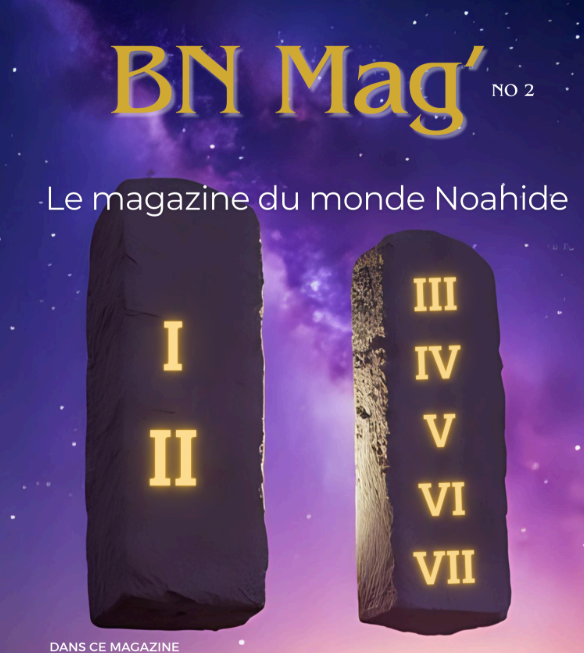What does Judaism have to say about Islam?
On the 7th of October, 2023, Hamas attacked the citizens of Israel. Over 1,200 children, women and elderly, Jews, and people of all religions were brutally murdered, hundreds were taken captive, and some were murdered in captivity. This attack was carried out by an Islamic movement acting in the name of Islam. This fact should lead us to reflect more deeply on the relationship between Judaism and Islam in the present and, more importantly, in the future. Facing this brutal attack, the Jewish nation has decided to fight to defend itself and has embarked on a mission to destroy Hamas.
Is Islam capable of progressing toward a spiritual goal that will prevent such atrocities in the future? The answer is to be sought amongst the leading Islamic religious authorities.
This question has become more salient today, mainly because the current moment in Arab history is unique. For the first time, a sovereign Jewish state arose again in a land that had been part of the Muslim world for a significant period (Dar al-Islam). This situation has engendered complex relations between Jews and Arabs in the land of Israel and across the Middle East.
Little has been written over the centuries exploring the Jewish tradition’s view of Islam. Such literature does exist, both in the philosophical realm and in that of Jewish law, but for the most part it is scattered across the rabbinic literature and challenging to find concentrated in one source. As well, few rabbinic authorities have also studied Islam in-depth.
In this letter I will fill this void. I have no intention to ignore or distort the problems between Judaism and Islam. Still, I am writing to the Islamic religious leadership in the hope that it will contribute to our mutual understanding and promote more peaceful relations between the sons of Abraham: the descendants of Israel and the descendants of Ishmael.
The Status of Islam in Judaism
The status of Islam in the Jewish philosophical and halachic (legal) literature is a topic that few take the time to study in-depth, both among Jewish and Islamic scholars.
We must address this from multiple facets: in part 1 of the letter, I will discuss the points of commonality between Judaism and Islam and the points of contention. In part 2, I will address the status of the prophet Mohammad, the potential for joint action between Islam and Judaism as strictly monotheistic religions, steps that Islam must take from the perspective of Judaism to allow for such cooperation, the future of relations between the State of Israel and the Muslim world, the relevance of the seven Noahide laws for Muslims and the potential contribution of Judaism to Islam.
Points of commonality between Islam and Judaism
- Islam and Judaism agree with the belief in monotheism (that God is One), the negation of God’s corporeality and the rejection of idolatry. The great Jewish scholar, Maimonides wrote that the monotheism of the sons of Ishmael is a “pure monotheism, without flaw,” meaning with no pagan components. Judaism recognizes that Islam worships one God despite the differences in understanding the meaning of this oneness, and this recognition has practical implications. One of them is that while Jewish law forbids a Jew from entering a place of idol worship, it allows entry to a mosque. All rabbis accept this, myself included. We have no desire to convert Muslims to Judaism nor to kill or subjugate them.
- From Judaism’s perspective, all people are obligated to accept and fulfill the seven commandments God gave to all humanity, referred to in the Jewish tradition as “The Seven Noahide Laws.” These laws are the prohibition of idolatry, prohibition of cursing God, prohibition of murder, the prohibition of sexual deviancy, prohibition of theft, the prohibition of eating meat torn from a living animal, and the positive obligation to establish courts of justice and a penal system. Islam accepts these commandments in principle, and therefore Judaism can accept Islam as a sister religion – and indeed we are both descendants of Abraham. At the same time, Islam has not yet clearly affirmed these principles as obligatory toward non-Muslims and this equivocation has been a blemish on Islam throughout its history, expressed once again by the events of October 7th.
- God has not commanded the Jews to convert non-Jews, but rather to accept only those who desire to join the Jewish people out of their own initiative. In contrast, Islam aspires to impose its rule on the entire world. The use of violence to further the spread of faith is considered entirely illegitimate by Judaism. However, from a Jewish perspective, the original intent of Islam could be expressed by Abraham’s initial phase, in which he built a movement for ethical monotheism, gathering tens of thousands of followers before he was commanded to found a particular nation.
- God commanded the people of Israel with 613 commandments, above and beyond the seven Noahide laws. The 613 commandments were given as part of the covenant God made with the people of Israel so that they would serve as a model of a holy nation for all humanity and collective holiness. The sons of Ishmael were blessed with fertility and abundance to fulfill the mission of spreading the worship of the true God to all people as individuals. In other words, the sons of Ishmael were given the role of spreading the knowledge of the One God and His ethical commandments to a more significant number of people. In contrast, the sons of Isaac and Jacob were given the role of founding a model of collective holiness based on the covenant with God to make them a “kingdom of priests and a holy nation,” to serve as a model for emulation for all humanity.
- For Judaism, the appearance of a new religion that recognizes God’s oneness and the Noahide laws was a cause for grand celebration, and many expressions of affinity could be found in the initial period of Islam, despite the difficult and violent conflicts of those days.
- In light of the crisis of values in many societies in our times, cooperation between the sons of Israel and the sons of Ishmael could bring great blessing to the world and promote the belief in God’s oneness and his ethical commandments.
Points of disagreement between Judaism and Islam
Alongside the above commonalities, there exist many significant points of dispute between Judaism and Islam. We will focus here only on the main and fundamental points and not the peripheral ones.
- The first point of contention is the claim by Islam that the Mosaic Torah has been nullified and that even the Jews are called upon to accept Islam. For Judaism, the Mosaic Torah is eternal. Even if God sends additional prophets after Moses, and even if He sends them to other nations, the Torah remains valid, as it represents God’s word and is incumbent on all Jews. Likewise, it must be stated that according to Judaism, the commandments of the Mosaic Torah are not incumbent on Muslims.
- The second point of contention is Islam’s claim that the Jews have corrupted the holy scripture and erased, as it were, the predictions of the coming of Muhammad. This claim is not made across the board but instead mainly concerning any contradiction between the Torah and the Quran. Many of the stories of the Hebrew Bible and the Jewish tradition are brought in the Quran, which Muslims accept as accurate.
- The third point of contention, most relevant today, is God’s promise that the Jewish people will return to their land and establish a state.
- Islam holds that it must spread its faith to all humanity by force if necessary. Judaism rejects the use of violence as a tool for spreading its faith.
Therefore, for Islam to be truly accepted by Judaism as a legitimate religion for all peoples, three points must be agreed upon:
- The recognition of Islam as a religion parallel to Judaism and not as a replacement and that the prophecy of Muhammad has not come to invalidate the Mosaic Torah.
- The recognition that the Torah is God’s word, which carries a message to all humanity. This requires abandoning the claim of corruption (Tahrif), so that Judaism will be acknowledged as the religion from which Islam developed.
- The recognition of the divine promise that the Jewish people will return to their historic homeland and rule in it, as it says explicitly in the Quran.
Suppose the Islamic religious leadership should desire to build a bridge between the believers in the One God. In that case, they must be willing to listen to what Judaism has to say about additional essential issues, including Muhammad’s status, Judaism’s potential contribution to the world of Islamic faith, and more. I will address these topics in part 2 of this open letter.
With wishes for peace,
Rabbi Oury Cherki,
Chairman of Brit Olam Institutions
Arabic languege - Click here
Second part of the letter - Click here
Please help us spread the Noahide message
For a better world - Tax deductible donation
Become a full partner TODAY - Avraham@britolam.community
Q&A class about the article "A Bridge between Faiths; An Open Letter to Islam"
in participation of Rabbi Chaim Goldberg and inspiring Noahide people



